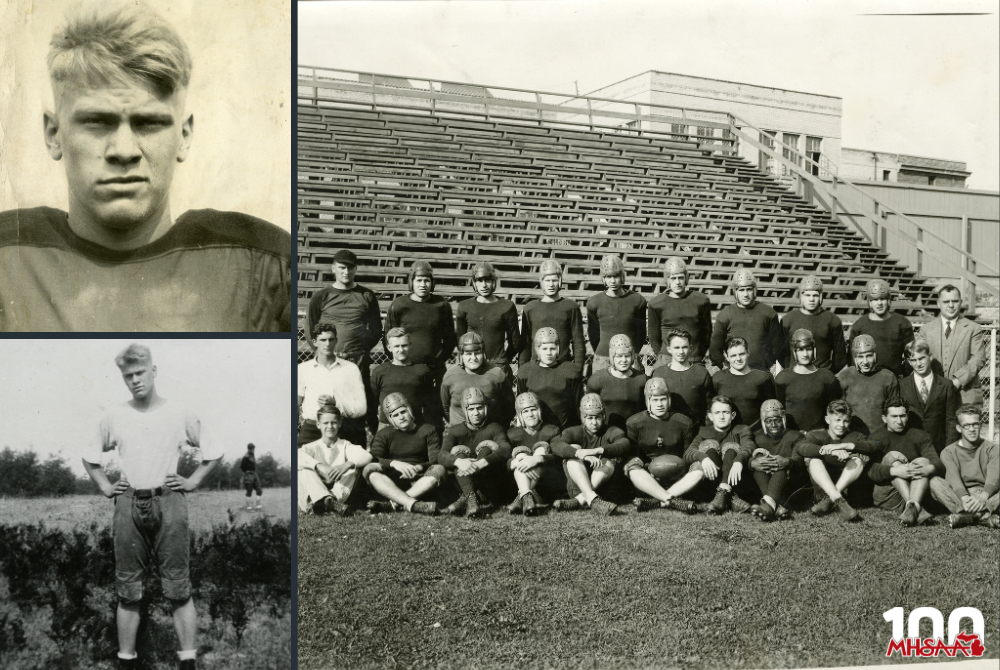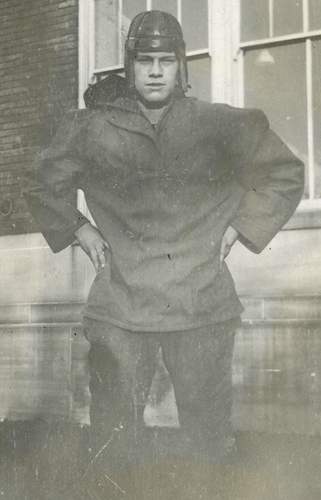
Playoff Proposal Pauses
May 10, 2013
During the MHSAA Football Finals at Ford Field last November, I was approached by representatives of the Michigan High School Football Coaches Association with a request to have the MHSAA’s computing capabilities crunch the numbers for a concept that a couple of the coaches association’s members had for revising the MHSAA Football Playoff point system.
Within a few weeks the MHSAA hosted a meeting that brought together the coaches who introduced the concept with our numbers crunchers; and within a few days our staff had outlined the principles, revised the point system and retrofitted it to show how the system would have affected the 2012 playoffs.
There was initial excitement that we might be onto something, but that brief infatuation began to wane as we dug deeper and discussed the plan more widely.
The key ingredients of the proposal are (1) that a school would gain playoff points for every game its opponent wins, whether or not that school defeated that opponent, and (2) that the number of automatic qualifiers would be reduced in favor of a larger group of additional qualifiers based on a revised playoff points system that would favor schools which schedule larger and more successful opponents.
In spite of our staff’s helpfulness in bringing this proposal forward, we’ve lost optimism that it will accomplish what is hoped. Rather than making regular-season scheduling easier, it could make it harder as the “six-wins-and-in” mindset is replaced by the even worse “seven-wins-and-in” mindset. And any system that ignores a minimum number of wins and relies entirely on playoff points is even less fair than the current system to schools in the less densely populated areas of Michigan.
From our retrofitting of the proposed concept to the 2012 season, we know that teams with 6-3 records would be displaced in the playoffs by teams with 4-5 records, which is certain to go down badly and be difficult to explain to those communities. The revised point system would make it even more difficult than the current system for schools in less populated areas to find opponents of the size and strength to generate high playoff point averages without these schools driving 100, 200, 300 or more miles, one way, several times each season. For individual schools and some entire leagues, this will make football scheduling tougher, not easier. It is likely to add stress to those league affiliations, and to football scheduling generally.
In any event, there is no need to rush to 2013 or 2014 a proposal that’s called “Enhanced Strength of Schedule System” because schedules are 99 percent set for 2013 and nearly so for 2014. Even if adopted today, few schedules would be impacted before 2015. If a change like this one is to be implemented, schools must have ample notice, and our technology department must have enough time to program the new point system and then test it through an entire season.
The Representative Council acted wisely on May 6 when it paused the progress of this proposal. Some elements of it may be discussed at the MHSAA’s scheduled meetings this summer and fall.

Flashback 100: Before Leading Free World, Ford Starred for Champion GR South
October 25, 2024
The only U.S. president from the state of Michigan, Gerald Ford also is the only person to become president without winning an election to become either president or vice president.
But before a career in politics, Ford starred on the gridiron at Grand Rapids South High School. South opened in 1917 and closed as a high school in 1968. Ford graduated in 1931, playing as a senior on a football team that would go undefeated and eventually be named a state champion according to statewide media – whose rankings determined champions before the creation of the MHSAA Playoffs in 1975.
 Ford's final game was a scoreless tie played against cross-town rival Grand Rapids Union, a game Union would later forfeit for using ineligible players.
Ford's final game was a scoreless tie played against cross-town rival Grand Rapids Union, a game Union would later forfeit for using ineligible players.
Ford also played basketball and ran track at South. After high school, he attended the University of Michigan and played football for the Wolverines. In 1934, his senior year, he was named team MVP. Following that, he attended law school at Yale and was an assistant football coach for the Bulldogs.
Ford was elected to Congress in 1948 and served 13 terms in the House of Representatives. When Spiro Agnew resigned as vice president in 1973, President Richard Nixon selected Ford as the new VP. A year later, after Nixon resigned, Ford assumed the presidency – becoming the 38th president of the United States.
Ford was inducted into the State of Michigan Sports Hall of Fame in 1977 and the University of Michigan Hall of Honor in 1978. He died in 2006 at the age of 92. The Gerald R. Ford Presidential Museum in Grand Rapids is the presidential museum and burial place of Ford and his wife Betty.
Previous "Flashback 100" Features
Oct. 18: Mercy Links Legend Becomes World Golf Hall of Famer - Read
Oct. 11: Fisher Races to Finals Stardom on Way to U.S. Olympic First - Read
Oct. 4: Lalas Leaves High School Legacies on Ice & Pitch - Read
Sept. 27: Tamer's History-Making Run Starts in Dexter, Continues to Paris - Read
Sept. 20: Todd Martin’s Road to Greatness Starts at East Lansing - Read
Sept. 13: James Earl Jones, Dickson High Hoops to Hollywood Legend - Read
Sept. 6: Pioneers' Unstoppable Streak Stretches 9 Seasons - Read
Aug. 30: Detroit dePorres Rushes to 1995 Class CC Football Championship - Read
PHOTOS (Top) Clockwise from top left: Gerald Ford headshot from 1929. (2) Ford appears in a team photo with Grand Rapids South that fall. (3) Ford stands in football pants in 1930. (Middle) Ford appears in his uniform in 1928. (Photos courtesy of The Gerald R. Ford Presidential Library.)

